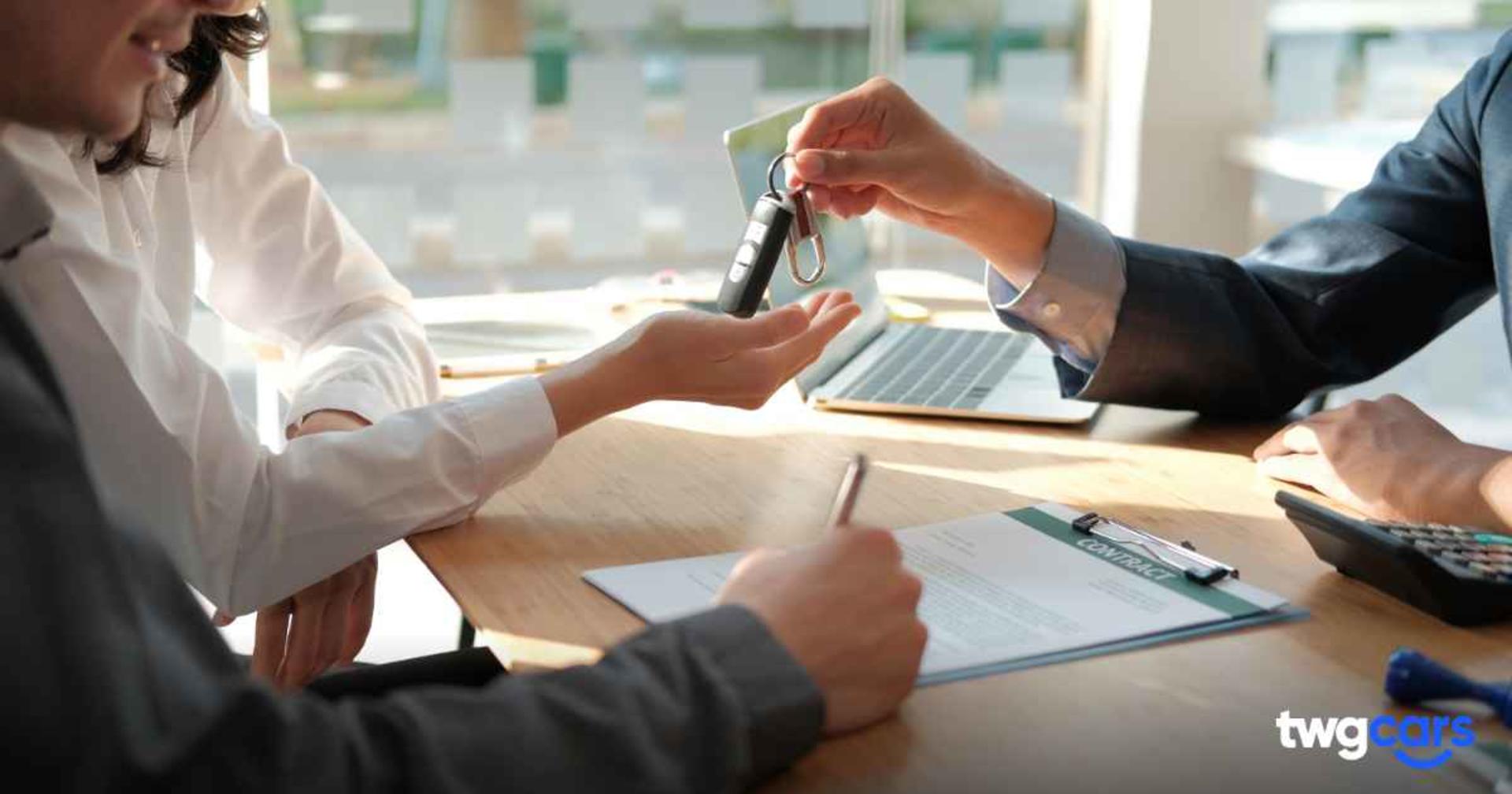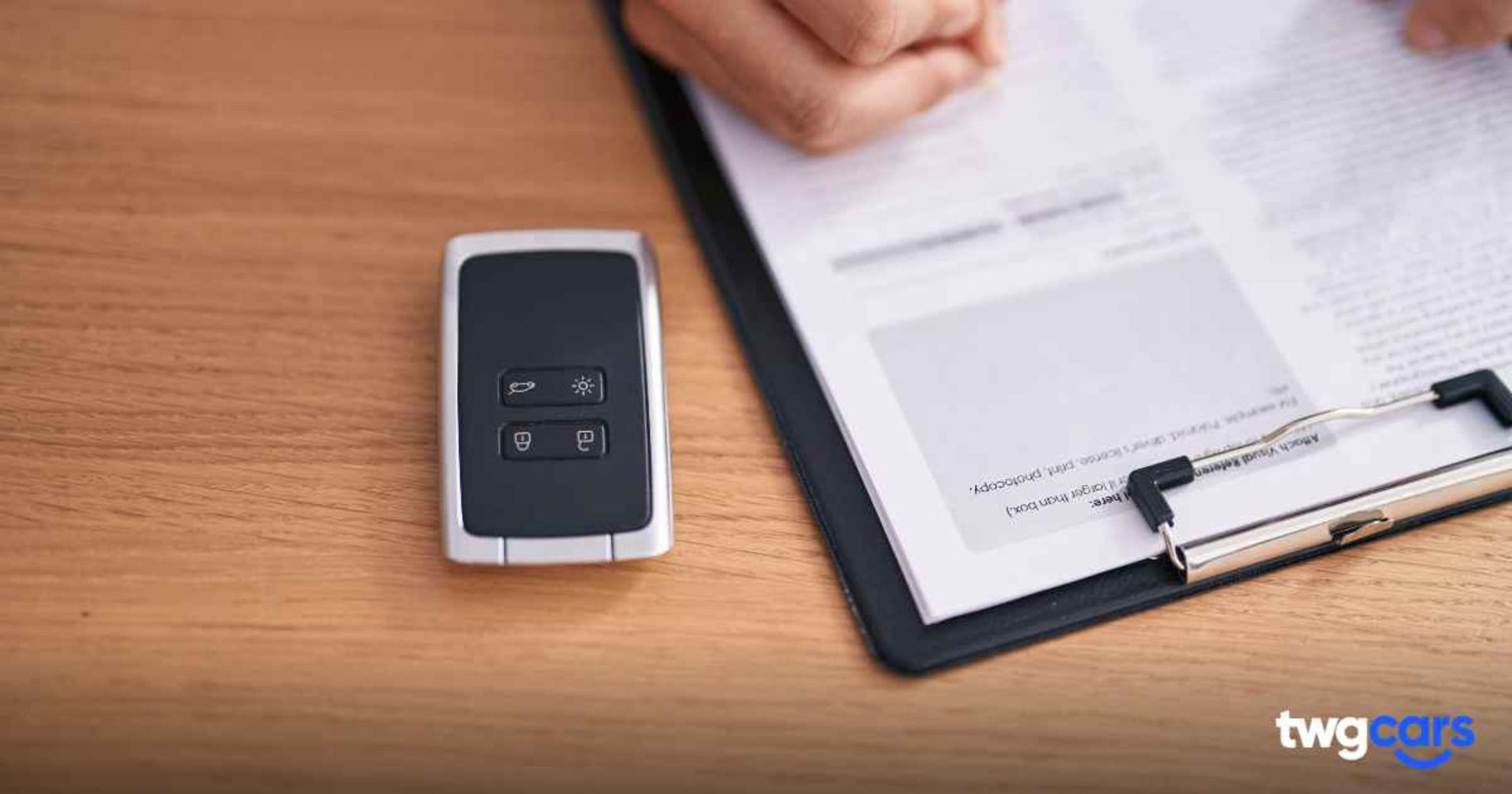Essential Steps: What to Do When Buying a Used Car Privately in QLD

Essential Steps: What to Do When Buying a Used Car Privately in QLD
Buying a used car privately in QLD can be a smart move for your wallet but there are some potential risks.
Understanding what to do when buying a used car privately in QLD is key in avoiding the common pitfalls. Our guide cuts through the confusion, providing straight-to-the-point advice on performing thorough checks — from vetting the seller to inspecting the vehicle, sorting the legalities, and handling the finances.
Learn how to confidently navigate the process and make a purchase that’s worth your hard-earned money.

Drive Away Facts
- Buying a used car privately in QLD can save money but requires due diligence, including inspecting the car, verifying the seller’s ownership, and conducting a PPSR check for financial encumbrances or a stolen vehicle history.
- A pre-purchase vehicle inspection and test drive are critical for uncovering potential issues and ensuring the car is comfortable and suits your driving needs; make sure to check for wear signs, unusual noises, and ensure that all features work properly.
- Finalising a private car purchase involves understanding and managing legal paperwork, securing comprehensive insurance, checking the car’s service history, possibly obtaining a loan, negotiating the price based on the car’s condition, and ensuring secure payment methods.
Understanding the Private Sale Process in QLD
When buying a car privately, the stakes are high but so are the potential rewards.
You’ve probably heard that private sales can be easier on the wallet compared to dealership prices. That’s because private sellers are often motivated to make a quick sale, offering you a better price for their once-treasured vehicle. But remember, there’s no statutory warranty to catch you if you fall. So, before you dive in, do your homework on different makes and models to find the perfect match for your needs.
Consider all the different costs that come along with your new set of wheels:
- the price tag is just the beginning
- you’ll also need to factor in registration
- insurance
- any whispers of maintenance that might be echoed in the vehicle’s past
Think of it like dating. You want to know what you’re committing to, beyond just the surface appeal. And let’s be honest, a little bit of research never hurts anyone, especially when it comes to avoiding the heartbreak of a bad investment.
Verify Seller and Vehicle Ownership
Ensure that the person selling you the car isn’t taking you for a ride. You must take a peek at the Queensland registration certificate or vehicle registration notice. This information will confirm that the seller is the rightful owner.
Also check that the car’s details, such as the vehicle identification number (VIN), engine number, and registration number, align with the vehicle in front of you.
Having the car inspected by a professional can offer an added layer of security, especially since private sellers might not be as thorough as licensed motor dealers in checking a vehicle’s history. Remember, while you might love the idea of a charming old car with a story, you don’t want that story to include a chapter where it was reported stolen or part of a dodgy deal. So, when it comes to what to do when buying a used car privately in QLD, arrange a professional to verify everything. Before you hand over any cash.
Conduct a Personal Property Securities Register (PPSR) Check
Now, let’s talk about the less glamorous but critical PPSR check. A PPSR check can tell you if a car has a shady past, such as unpaid debts or money owing. It can even tell you if the car is stolen. Confirming the car’s legitimacy and matching the details against the seller’s registration papers is a sure-fire way to make an informed purchase.
What happens if you buy a used car privately in QLD with a shady history? If the car is stolen, it may be repossessed. If there is money owing on the car, you will be responsible for those payments. So, do yourself a favour and ensure you’re not about to buy someone else’s problem.
It can confirm the car’s legitimacy and match the details against the seller’s registration papers.
Pre-Purchase Vehicle Inspection Essentials
Imagine being handed a treasure map where ‘X’ marks a car that looks perfect on the surface. But before you dig, there’s a crucial step: the independent vehicle inspection.
This is where you can unearth any hidden issues that might not be immediately apparent. You’ll want to examine the car from the inside out, checking for signs of wear or damage that could indicate a history of accidents or mechanical neglect. It’s like checking the foundations of a house before you invest—it’s what’s underneath that counts.
But it’s not just about what you see; it’s also about what the seller provides. A recent inspection report, which should be no older than 42 days, can offer valuable insights into the vehicle’s condition. This report can be your bargaining chip when discussing the price, potentially saving you a bundle in the long run.
Plus, buying from a dealership like TWG Cars means you get the reassurance of a vehicle that’s already been given the once-over.

What to Inspect
Let’s roll up our sleeves and get into the nitty-gritty of what to inspect. First, flip every switch and press every button on the dashboard. If everything lights up and responds as expected, you’re looking at a car that’s been cared for. Next, test out the in-car tech like the sound system and Bluetooth connectivity.
But it’s not just about the tech—it’s about the car’s body too. Check for signs of wear that could spell trouble, like:
- uneven wear on the back tires that might hint at a bent chassis
- rust or corrosion on the body
- dents or scratches that could indicate previous accidents
- mismatched paint, which could mean the car has been repainted
Pay attention to the details, because they can tell you a lot about the car’s past and future.
Identifying Warning Lights and Signs of Wear
While we may not delve into the specifics of dashboard warning lights, the importance of identifying them cannot be overstated. Think of them as the car’s way of communicating its health and needs. Warning lights are the car’s version of a cry for help—ignoring them is like ignoring a partner’s call when they’ve had a bad day.
Keep an eye out for signs of wear that speak volumes about the car’s history. For instance, water or rust under the mats could indicate past leak issues, while transmission problems might present themselves through jerking gear changes or squeals.
With dealerships like TWG Cars offering a statutory used car warranty on their vehicles, you have an extra layer of protection.
Test Drive Tactics
Imagine slipping behind the wheel, the anticipation building as you’re about to find out what this car is really made of. The test drive is your moment to shine, to put the car through its paces and see how it handles real-life conditions.
You’ll want to check the alignment by driving straight and testing the power steering’s responsiveness. Think of it as a dance—does the car move with you, or does it step on your toes?
Comfort is key, too. The test drive is the perfect time to make sure:
- the seat supports you
- the car’s dimensions fit you like a glove
- you can see out of all the windows
- you get a feel for the car’s ergonomics
There’s nothing worse than a car that cramps your style, literally. So, take your time and make sure it’s a good fit before you commit.

Assessing the Drive
The open road is calling, and it’s time to answer. During your test drive, you should take the car through different traffic situations to see how it behaves in stop-and-go traffic as well as on the open highway.
Pay attention to the following when test driving a car, keeping in mind car safety ratings:
- How the suspension handles bumps
- How the car feels at different speeds
- Comfort in the driver’s seat
- Significant blind spots that could hide potential dangers
It’s these little details that can make or break your driving experience.
Checking for Unusual Noises
Your ears are just as important as your eyes during a test drive. Listen for any unusual noises that could be whispers of underlying issues, like:
- a rattling that hints at loose parts
- a squealing sound that could indicate a problem with the brakes
- a grinding noise that could mean there’s an issue with the transmission
These sounds are the car’s way of telling you its secrets, and you’ll want to pay close attention.
Listen for odd sounds during acceleration or idling, as these can indicate problems that might require immediate attention. It’s like the difference between a symphony and a cacophony—only one is music to your ears. So, keep your ears open and listen to what the car is trying to tell you.
Legalities and Paperwork in a Private Car Sale
The road to car ownership isn’t just paved with test drives and inspections; it’s also lined with legalities and paperwork.
In a private sale, you’re in charge of ensuring a clear title and handling the paperwork, which should include all the key details like the agreed price and vehicle description. It’s the equivalent of dotting your i’s and crossing your t’s—essential for a smooth ride ahead.
The paperwork is like the official vows of car ownership; it formalises your commitment to the vehicle. Be sure to understand every line and every requirement, as missing something could mean a bumpy road ahead. And remember, if anything seems off, don’t hesitate to seek legal advice. It’s better to ask questions now than to face complications later.
The registration transfer is like the changing of the guard, signalling the moment the car officially becomes yours.
Both you and the seller must sign the transfer form, and as the new owner, you’ll be responsible for lodging it and paying any fees. It’s like signing the lease on a new apartment—exciting and a little bit nerve-wracking.
You have 14 days to complete the transfer, and remember, some scenarios might require an in-person visit to a transport and motoring service centre. It’s all about following the proper steps to ensure everything is legal.
Understanding Stamp Duty Obligations
Stamp duty is like a rite of passage in the car buying process. As the buyer, it’s your responsibility to pay this duty during the transfer process. Think of it as the final stamp of approval from the state, a small price to pay for the freedom of the open road.
Securing Your Investment
Buying a car is more than just a transaction—it’s an investment. And like any good investor, you’ll want to protect your assets. Comprehensive car insurance is your safety net, covering you for damages to your car and others, no matter who’s at fault. It’s like having a guardian angel looking out for you and your car.
But insurance isn’t the only thing to consider. A car’s service history can tell you a lot about how it’s been treated and what you might expect down the road. Regular servicing can keep your car running smoothly and maintain its value over time
Obtaining Comprehensive Car Insurance
Comprehensive car insurance is like a warm blanket on a cold night—it offers protection and peace of mind.
With coverage for accidents, theft, and even natural disasters, it’s the most extensive insurance you can get for your vehicle. It’s worth reviewing the policy details carefully to ensure you’re getting the right coverage for your needs.
Even though it comes at a higher cost, the benefits of comprehensive insurance can’t be overstated. It’s like opting for the full meal deal instead of just the entrée—you get everything you need in one package. So, take the time to find the right insurance; it’s an essential part of securing your investment.
Service History and Future Maintenance
The vehicle’s history, also known as the service history, is the car’s life story, revealing how well it’s been cared for over the years. A well-documented history can give you confidence in the car’s reliability and help you anticipate future maintenance.
Financing Your Used Car Purchase
Let’s talk turkey—or in this case, dollars. Financing a used car purchase is a crucial step on the road to ownership.
Lenders across Queensland are ready to throw you the keys, metaphorically speaking, with interest rates starting around 7.00% - 8.00% per annum. But remember, private sale car loans might need an extra layer of checks, because let’s face it, they’re a bit riskier than buying from a dealer.
When you’re comparing loans, it’s not just about the interest rates; it’s also about the fine print. Look for loans that allow for early repayments without penalties and consider any associated fees.
Loan pre-approval is like having a green light at every intersection; it shows sellers you’re serious and ready to go, and it can protect you when you’re ready to put down a deposit. And if your credit history has a few blemishes, don’t lose hope. You might still be able to finance your car purchase but be prepared for potentially higher interest rates.
Finalising the Deal
You’re almost at the finish line. The final step in your car-buying journey is to seal the deal. At this point, you’ve:
- Inspected the car
- Taken it for a spin
- Checked the paperwork
- Maybe even secured a loan
Now it’s time to talk numbers and get those keys in hand. In Queensland, there’s no cooling-off period or statutory warranty when you buy from a private seller, so make sure you’re 100% satisfied before shaking hands.
If, by some twist of fate, things go south after the purchase, you may need to navigate the legal system to resolve any disputes. It’s not the most pleasant of thoughts, but it’s better to be aware of this possibility than to be caught off guard. After all, buying a car is a significant investment, and you want to ensure that you’re protected every step of the way.
Negotiating the Purchase Price
Negotiating can be a subtle art, akin to a dance where each step is carefully calculated. Armed with information from thorough inspections and perhaps a vehicle history report, you’re in a strong position to discuss the purchase price.
If the car has some wear and tear, use this as leverage to negotiate a reduction. Tools like CarHistory reports and RedBook can help you determine a fair market value, ensuring you don’t overpay for your new ride.
Remember, private sellers aren’t seasoned salespeople, and they’re often eager to close the deal. This can work in your favour, giving you the upper hand in negotiations. Employ strategies like:
- the ‘if and then’ technique — ‘if you fix this, then I’ll pay that’
- don’t be afraid to walk away. Sometimes, the space you leave can bring the seller closer to your offer
- trust your instincts and stay true to your budget
- a mobile vehicle inspection could save you thousands and provide solid bargaining chips
Making Payment and Receiving Keys
The final act of your car-buying journey is the payment. To avoid any complications, stick to secure payment methods like online bank transfers with cleared funds or instant bank transfers done in-branch. Think of it as a digital handshake, confirming the deal is done. And just like any major life event, you want to ensure all the important accessories come with it.
Make sure you receive all keys, service books, the owner’s manual, and any relevant security codes.
Receiving the keys to your new (old) car is like holding the pen to a new chapter in your life. Before you drive into the sunset, take a moment to ensure you’re leaving with everything you need. It’s not just about the physical keys; it’s about having the knowledge and documentation to support your ownership. It’s the difference between merely owning a car and truly understanding it.
Summary
As our journey comes to an end, remember that buying a used car privately in QLD is a dance that requires rhythm, patience, and a bit of legwork. From verifying the seller and the vehicle, conducting a PPSR check, and doing a thorough inspection, to securing financing, negotiating the deal, and finalising the paperwork—each step is a move towards a successful purchase.
Protect your investment with comprehensive insurance and regular maintenance, and you’ll be set for many adventures to come. With the right approach, buying used cars privately can be a rewarding experience that leaves you in the driver’s seat, both literally and figuratively. So, take a deep breath, turn the key, and enjoy the ride.

Frequently Asked Questions
What do I need to check when verifying a seller and vehicle ownership?
When verifying a seller and vehicle ownership, you need to check the seller's identity using the Queensland registration certificate or vehicle registration notice. You also need to ensure that the vehicle's details match its physical attributes. This is important for your peace of mind and to avoid any potential issues down the line.
Why is a PPSR check important when buying a used car?
A PPSR check is important when buying a used car because it can reveal outstanding debts, theft reports, or write-off status, protecting you from potential legal and financial problems.
Can I negotiate the price when buying a car privately?
Yes, you can negotiate the price when buying a car privately by using vehicle inspections, service history, and estimated market values as leverage.
What should I do if I find issues after purchasing a used car privately?
If the seller didn't disclose significant issues and you can't resolve the dispute, consider seeking legal advice or filing a complaint through the civil courts in Queensland. It's important to address the situation promptly to protect your rights.
Is it necessary to secure comprehensive car insurance for a used car?
Yes, it's necessary to secure comprehensive car insurance for a used car because it provides extensive coverage and peace of mind, regardless of fault.


